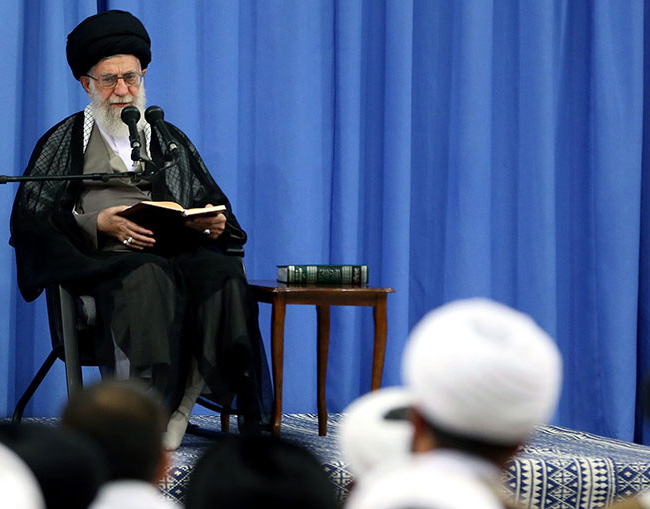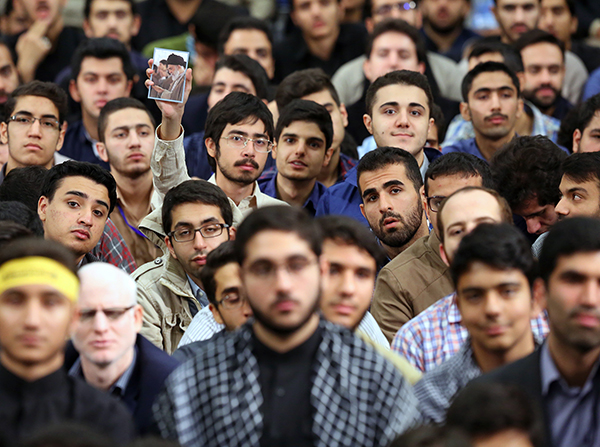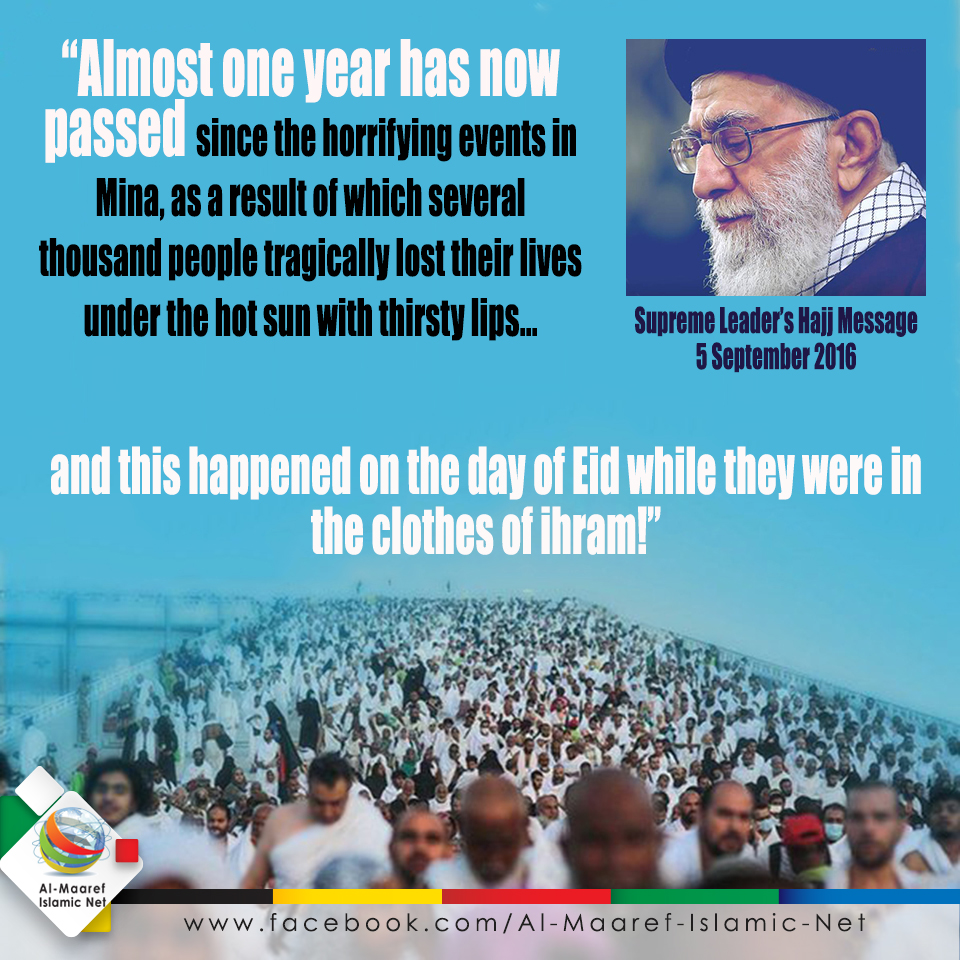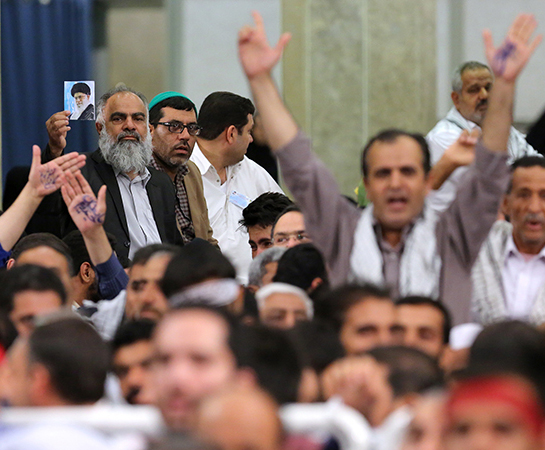Guidelines to Clerics
Ayatollah Khamenei, the Supreme Leader of the Islamic Revolution, began this year’s cycle of Dars-e Kharij in the new academic year of the Islamic seminaries. The following is the full text of the speech delivered on September 6, 2016 at Dars-e Kharij.
In the Name of Allah, the Good, the Merciful: I have thankfully returned to you gentlemen and wish to hold fiqhi discussions after being away from the classroom and seminary for more than three months. During this time, we went through the month of Ramadan and a hot summer. By performing religious duties during the month of Ramadan, fasting during the hot and long days of the month, saying the prayers of that month, engaging in acts of humility, supplication, and other similar actions, as well as engaging in a variety of activities, such as carrying out promotional tasks and explaining religious rules, some people actually benefited from the month of Ramadan.
Some people went to other cities, while others were busy in Tehran. The month of Ramadan was extremely beneficial for some of you as well as the remaining brothers in Tehran. And some people didn't get much out of it, so we should feel bad about it and try to make up for it.
In the broadest sense, it is essential that seminarians, religious clergy, and religious ulama comprehend their respective responsibilities at all times. Knowledge, piety, and the like won't help us if we don't know what our responsibilities are. To put it another way, they won't be used in the right way.
Consider the scenario in which you have a lot of money but are unaware that your child is ill. If you were aware that your child is ill and requires, say, surgery or treatment, you would go get it done because you have money in your pocket. However, either you will lose him or his disease will worsen if you are unaware of it. You could have cared for him while you had the money and resources to do so.
Knowledge, piety, and even courage won't work well if we don't know what our responsibilities are, where we should be, and what Allah the Exalted and our religion want us to do in society. Some people get very upset when we keep using the word "insight" and ask, "Why does he always talk about insight?" This is what insight means! Knowing what needs exist in society today is one important aspect of insight. Millions of young people live here. Youth are susceptible to learning, but what they learn is crucial. From a poem by Hajj Mirza Habib, a poet declares, "I am a clean board and I am ready for all kinds of writings."
On this clean board, you can write anything you want. Who ought to lead the charge? Who ought to take the lead? Who is responsible for determining when some erroneous and unfavorable writings have been written on this clean board so that they can rectify them? Insight is required for each of these. We ought to be aware of the current requirements of society. Today, our adversaries spend a ridiculous amount of money to influence the religious and Muslim youth of Iran. Which source? from religion's very essence. Not only do they want to distract people's attention from the Islamic Republic, Wilayat-e Faqih, and other similar concepts, but they also want to distract them from the essence of religion, the practice of following religion, the Shia issue, the Islamic Republic, and other current concepts and issues.
They constantly fabricate falsehoods. Some people in the country serve as their instruments, but many are outside the country. They make decisions despite being outside the country. They spread specific subjects and topics they select. Additionally, they advise others to promote them.
Today, cyberspace resembles an interminable desert from which we can progress. The present is not the same as the past. In the past, if you wanted to explain something, you had to write it down and then print 10, 100, or 200 copies. This is no longer the case. A medium is any person who can use a computer. They sit and spread falsehoods and false ideas, leading healthy, pious youth astray. It is necessary to identify these errors. Who ought to step up to act as a shield and stop young people from going astray? Who should prevent the antagonist from diverting young people's thoughts? Who is responsible for this undertaking? This is the clergy's first duty as members of the religious and academic community. In fact, this is its most significant duty.
These capabilities ought to be developed within Islamic seminaries themselves. They ought to instill in themselves the capacity to confront this vast and infinite enemy army that is advancing against the faith, beliefs, and moral well-being of the populace as well as the morality of young people. Numerous websites aim to undermine Muslim youth's morality and modesty, whether they are boys or girls. Their objective is to shed their modesty. They are preparing for this, which is their primary effort.
Well, there are some activities that are illegal. It is the responsibility of various government agencies to combat such activities, and they are successfully doing so. However, intelligence work and security and military confrontations cannot resolve activities that are related to one's mind and heart. Such activities necessitate instruments that are as effective as the diseases they involve. The clergy, religious ulama, and wise individuals in the field of religion have access to a remedy for such ailments.
We ought to get ourselves ready. Many of us lack the tools. Software and hardware knowledge are insufficient for many of us. The new approaches are not completely understood by some of the clergy. The Internet and similar technologies are completely foreign to them. They are unable to comprehend both its meaning and the significance of this work. This is evident to us.
There are some officials as well who fail to take the necessary steps because they do not fully comprehend the significance of this significant undertaking. For this purpose, we established the Supreme Council of Cyberspace. We made it so that officials can sit down together, think about it, and focus their willpower, choices, and actions on facing this huge event. There are numerous advantages and disadvantages to this industry. This is how the cyberworld works.
We will be able to get the most out of it. The adversary is acting in this manner. You can also work the other way around. That is to say, there is no barrier or obstacle to promoting Islamic ideas and teachings. Many good things are being done by some of our pious adults and young people, including turban wearers and non-turban wearers, clerics and non-clerics—some ordinary people are more active in this regard—and turban wearers and non-turban wearers. They suddenly promote one topic, one idea, and one correct idea throughout the world, and the opposing side becomes too perplexed to respond. As a result, some people have flaws as a result of not having this skill.
Furthermore, there are instances of software issues. To put it another way, they do not know how to deal with fallacies. Additionally, there are times when they are completely unaware that a fallacy exists! They are unaware of the modern fallacies! A hundred, five hundred years ago, there were some fallacies. It's possible that these fallacies have not been brought to light recently. So, should we go look them up in books to find the answer, or should we look at the current fallacies? Of course, some of the fallacies that still exist in this day and age are the same old ones, just disguised in new ways. There are such fallacies, and new ones occasionally appear as well. We ought to recognize and comprehend these fallacies. Islamic seminaries ought to carry out these duties. Islamic seminaries ought to participate in such endeavors.
We should not disregard fiqahat due to this. This is identical to fiqh. There is more to fiqh than just practical rules. The "fiqh" of Allah the Great is identical to these Islamic teachings. The teachings of Islam contain some ambiguities. Take note, for instance, of the tens of minor issues raised in one of the salat (daily prayers) sections for travelers. This is how precise our fuqaha is. They discuss a slew of side topics, such as when to cut salat short while traveling. Although this is just one problem, it leads to a slew of other smaller ones.
The "Ten-Clause Urwah," for instance, contains twelve or more clauses mentioned by Sayyid. Additional clauses have also been mentioned by others elsewhere. Ideological issues also fall under this category. Ideological domains are expanding and diversifying. The opposing side focuses on a small area and corrupts some people's minds with it. As a result, this is one of our primary duties. Islamic seminaries ought to be aware of this.
Fortunately, certain tasks have been carried out at the renovated Tehran Seminary. I understand that the Tehran Seminary inauguration will take place today. In this regard, significant achievements can be achieved. If God wills, I pray that each of you will succeed.



















